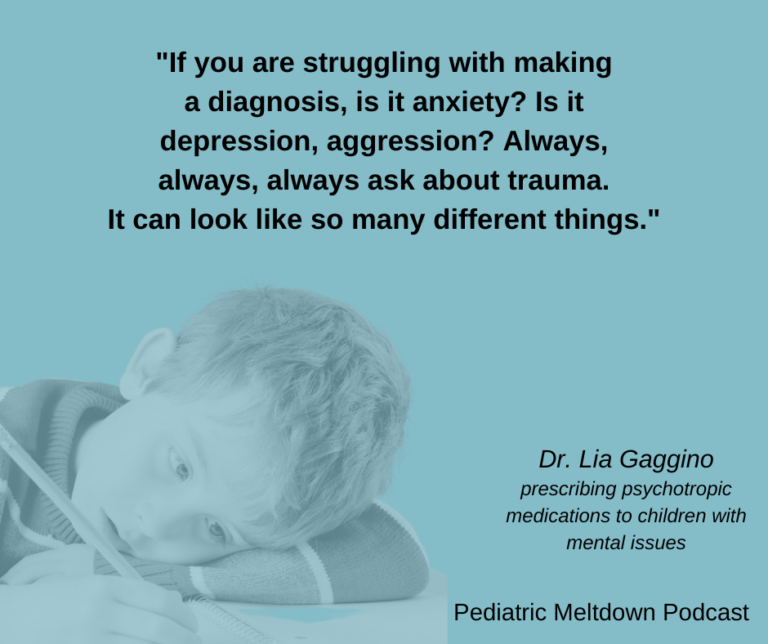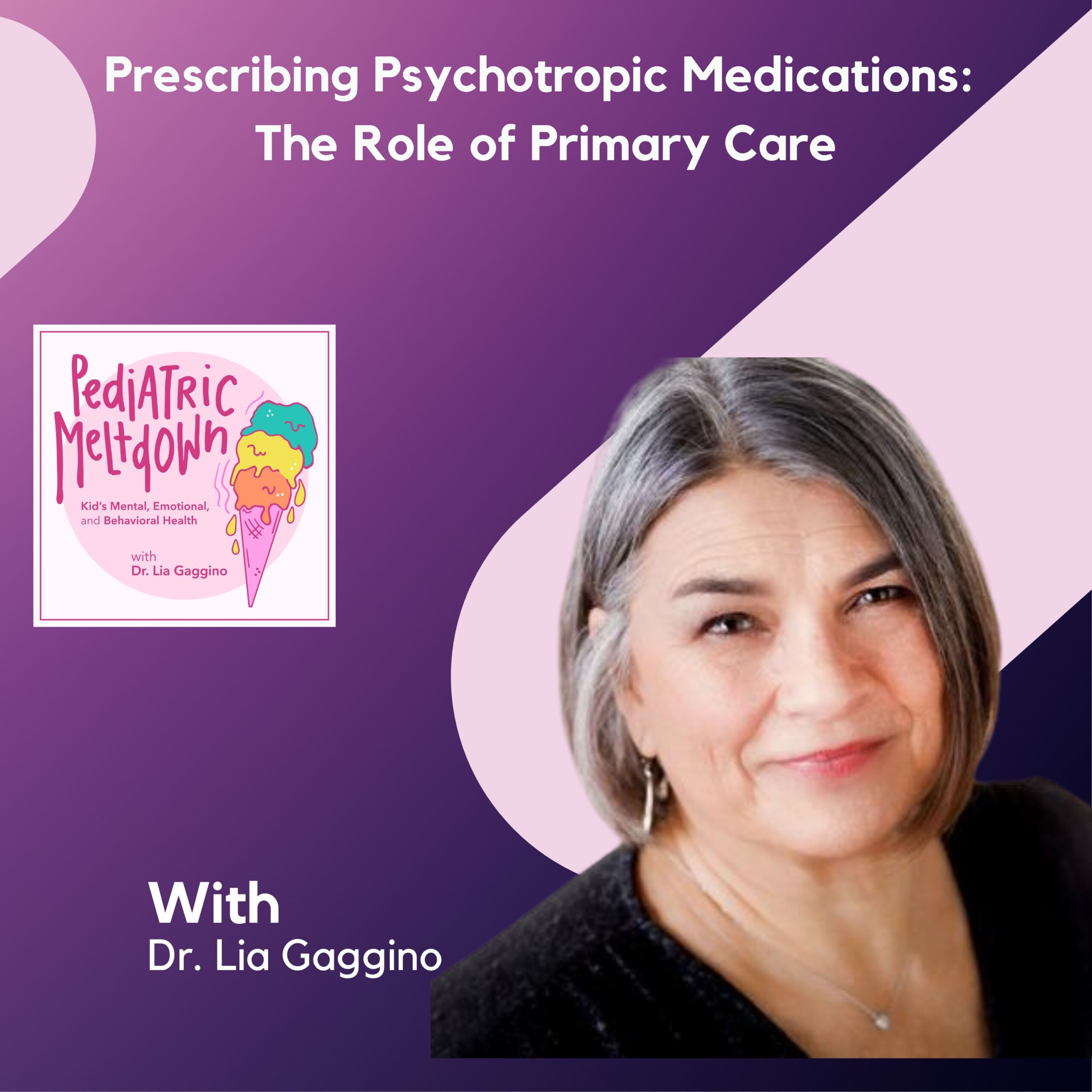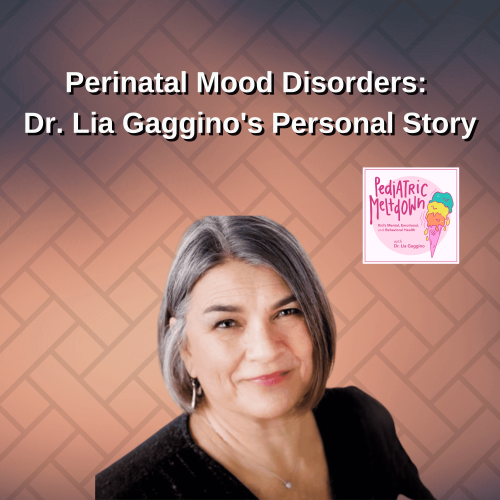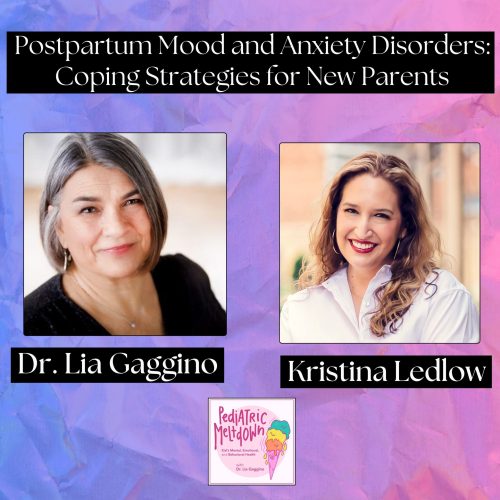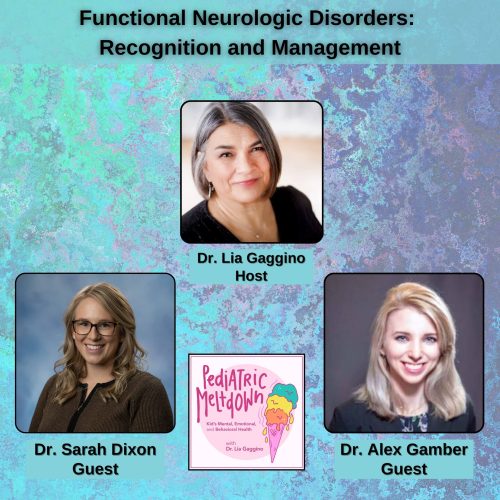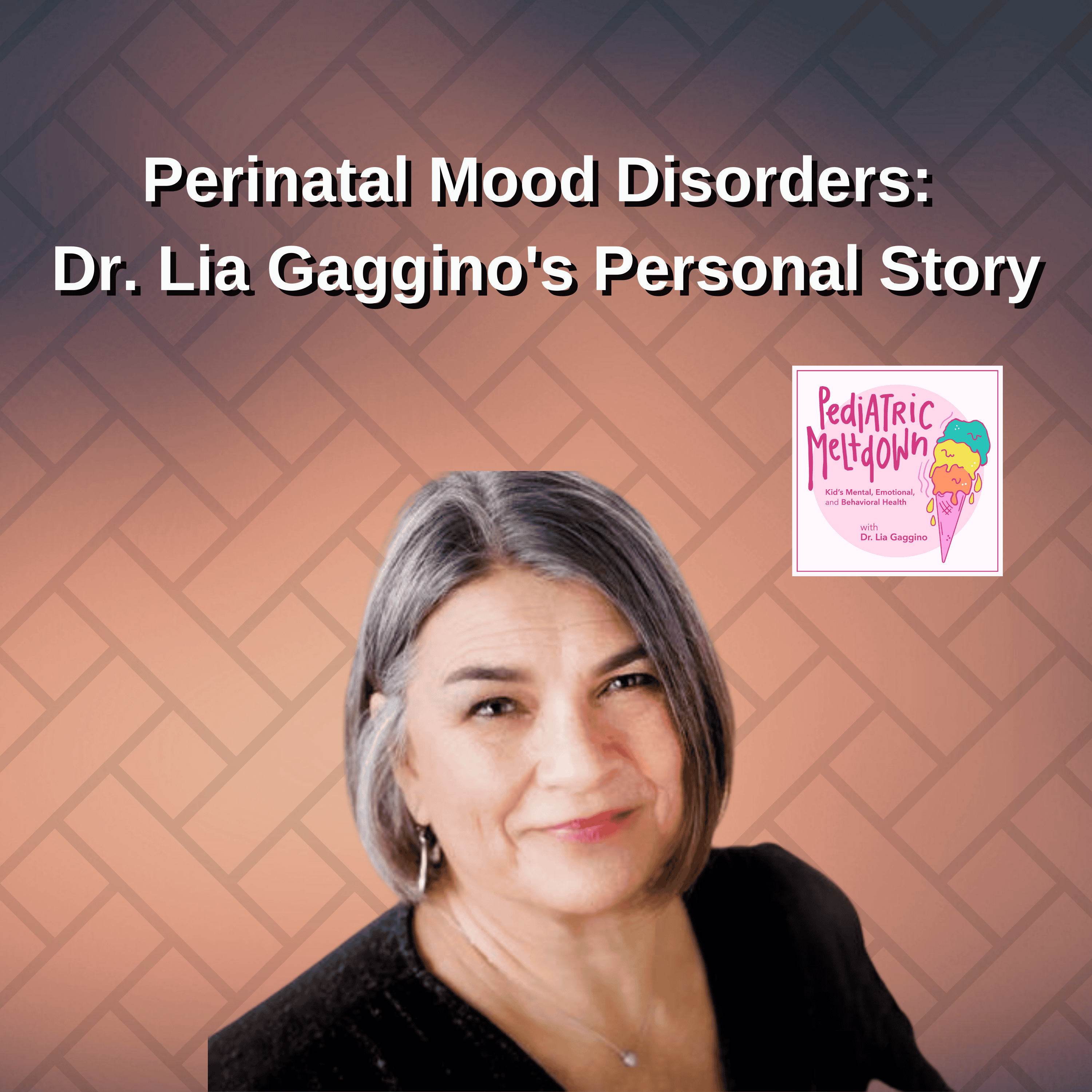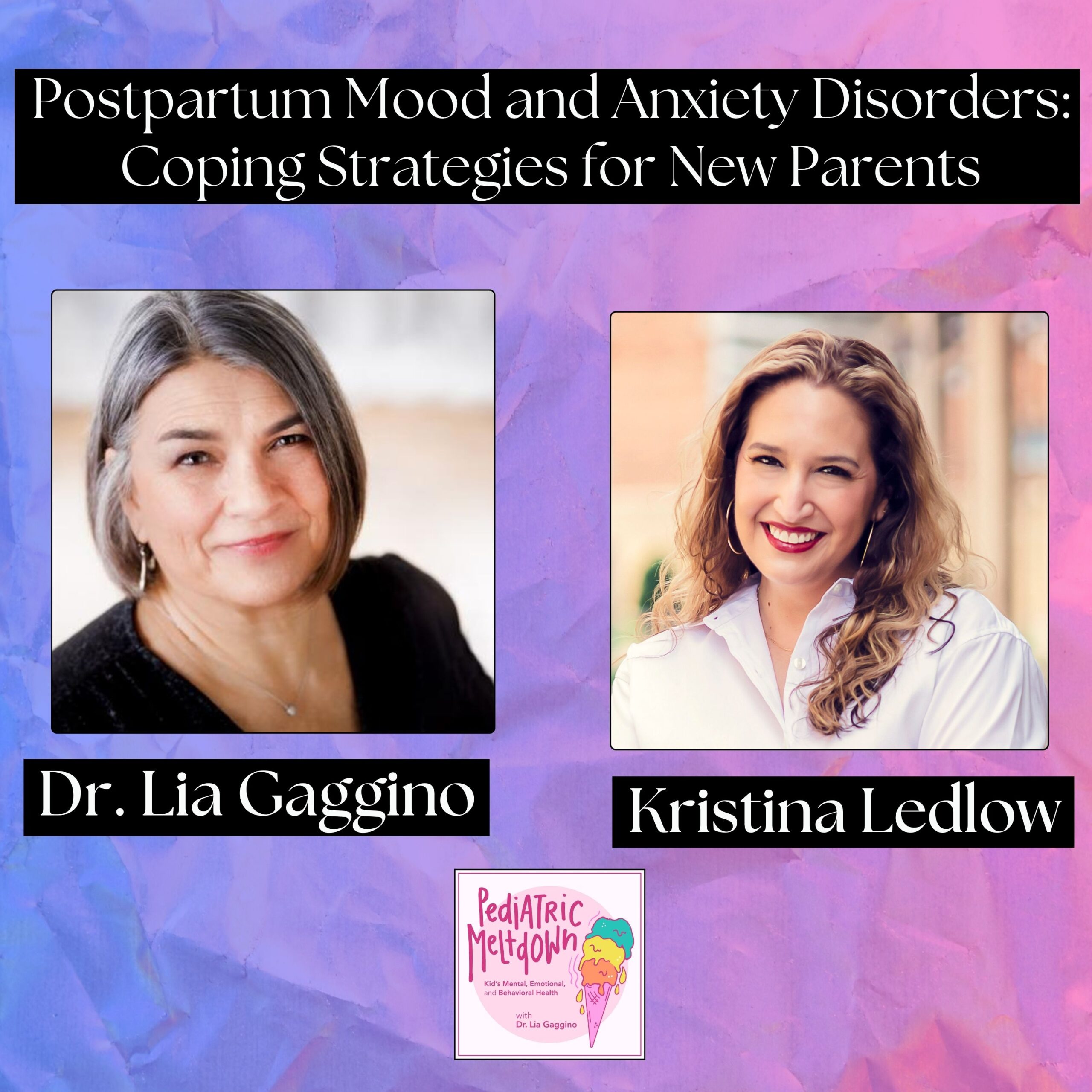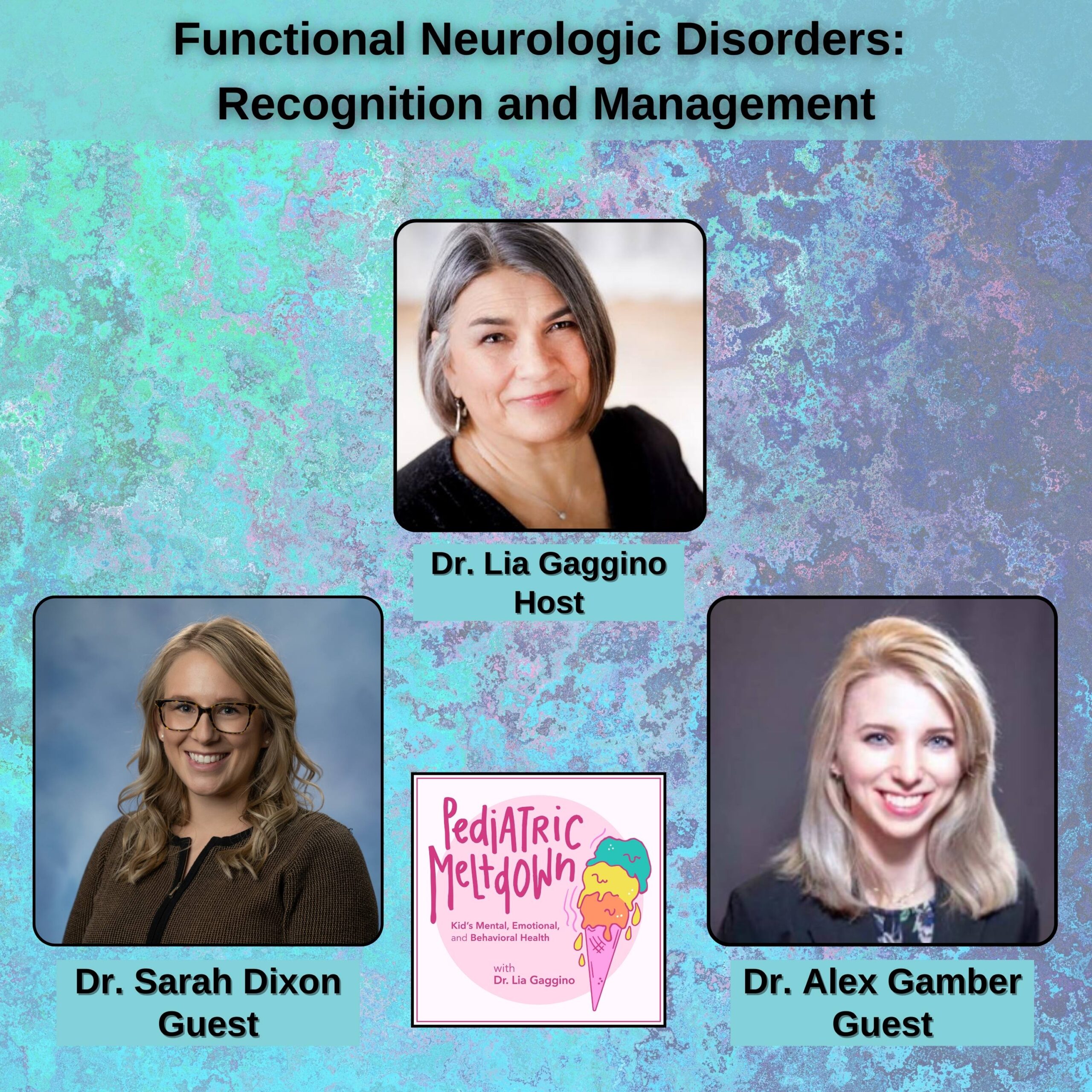Prescribing Psychotropic Medications: The Role of Primary Care
Are you navigating the complex world of psychiatric medication management in primary care? Look no further! In this episode of Pediatric Meltdown Dr. Lia talks frankly about the hesitancy of pediatric clinicians to prescribe psychotropic medications as one of the biggest barriers to providing mental health care in pediatric settings.
While she acknowledges that pediatricians are not child psychiatrists, Dr. Lia believes that pediatricians have the skills to address common mental health disorders including ADHD, anxiety and depression, and to do it well. She emphasizes the need to be mindful of suicide risk and to screen regularly for suicidal ideation, especially in patients with mental health disorders. And, always consider trauma when assessing for mental health and behavior concerns. When it comes to prescribing medications, get comfortable with a few SSRI’s and both stimulant and non-stimulant ADHD treatments, and before switching from one psychotropic to another, she advises maximizing dosing titration while simultaneously monitoring for side effects.
Remember that in your role as a primary care provider, you have an incredible opportunity to impact the stability and quality of life for children facing mental health struggles. For more tips, expert advice and in-depth knowledge, don’t hesitate to explore all of the resources available at pediatricmeltdown.com. Know better, do better!
[01:26 -03:50] Understanding the Role of Medication
- Primary care providers don’t need to be psychiatrists but should be equipped to prescribe SSRIs.
- Familiarize yourself with a few SSRIs such as fluoxetine, escitalopram, and sertraline and understand their characteristics.
- It’s vital to maximize doses carefully before switching between medications and to be aware of side effects.
[03:51 – 06:18] Navigating ADHD Medication Challenges
- Not all cases of ADHD are straightforward; comorbid conditions can complicate diagnosis and treatment.
- Stimulant medications can quickly indicate effectiveness; doses should be carefully adjusted based on response.
- Monitoring for side effects such as appetite loss, weight changes, and sleep disturbances is necessary.
[06:19 – 10:44] Managing Complex Cases and Atypicals
- Always explore the possibility of trauma influencing behavioral symptoms, as it can mimic various conditions.
- Exercise caution when inheriting a patient on multiple medications; consult specialists rather than abruptly stopping treatment.
- Monitor physical health markers when prescribing atypicals like hemoglobin A1c, lipids, and prolactin levels, considering adjunctive treatments like metformin.
Links to resources mentioned on the show
Episode #44 with Dr. Jeffrey Strawn. Anxiety Disorders in Children: Treatment Options https://pediatricmeltdown.com/44-anxiety-disorders-in-children-treatment-pearls/
Episode #37 with Dr. Lisa Horowitz. Screening For Suicide Risk Using the ASQ Suicide Screening Questions Tool
Episode #132 with Dr. Brooks Keeshin. Psychopharmacology: Considerations Before Prescribing
https://pediatricmeltdown.com/132-psychopharmacology-considerations-before-prescribing/
Stephen Stahl’s Prescriber’s Guide
https://www.amazon.com/Prescribers-Guide-Stahls-Essential-Psychopharmacology/dp/1108926010
AACAP Facts for Families: https://www.aacap.org/AACAP/Families_and_Youth/Facts_for_Families/Layout/FFF_Guide-01.aspx
National Network of Child Psychiatry Access Programs www.nncpap.org/map
Key quotes for Twitter:
“I like Stephen Stahl’s, “Prescriber’s Guide”, and it’s really got nice information.”…. Dr. Lia Gaggino on her medication guide preference
“I think my biggest message to you about psychotropic medication is don’t be afraid to prescribe.”…Dr. Lia Gaggino advice to clinicians
THANK YOU FOR YOUR SUPPORT!
Pediatric Meltdown was listed as a Top 20 Pediatric Podcast on FeedSpot.
If you’d like to connect with me, you can Tap the “What Are Your Thoughts” button at the top of the notes or you can find me on LinkedIn, Facebook, Instagram, and Twitter, or email me at [email protected]. To learn more about me visit https://www.pediatricmeltdown.com/ or reach out, DM me on IG, FB or LI and if you’d like to chat set up a discovery call to talk about your needs and challenges: https://calendly.com/gagginol/discovery-call
LOVE WHAT YOU HEARD? Leave us a 5-star review so we can continue to provide you with great content. Share this episode and help people know more about children’s health and well-being.
